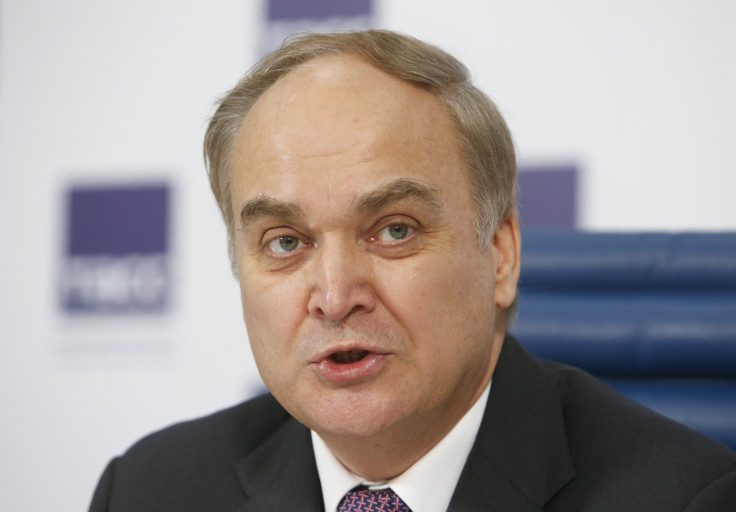Russia Calls US Nuclear Bomb Test 'Provocative' Weeks After Putin Announced Arsenal Expansion

The U.S. military's test earlier this month of a B61-12 nuclear bomb in Nevada was an “openly provocative” attempt to antagonize Moscow, a top Russian official said Monday. Deputy Defense Minister Anatoly Antonov condemned the exercise just weeks after Russian President Vladimir Putin announced his plan to expand Russia’s own nuclear arsenal.
The U.S. Air Force and National Nuclear Safety Administration used an F-15E fighter-bomber to test-launch a warhead-less bomb July 1. Antonov said it was the latest evidence of the United States’ aim to propagate a fictitious Russian threat in order to bolster its own military. Western officials have repeatedly criticized Russia since early 2014 for its annexation of Crimea and apparent involvement in the Eastern Ukraine conflict.
“The actions of the U.S. side in the current situation are openly provocative, and are contrary to Washington’s stated desire for complete nuclear disarmament,” Antonov said Monday, according to state-owned Sputnik News. “In particularly, the test was carried out using a F-15E fighter-bomber. This leads to believe that the test was carried out in order to examine the possibility of using the B61-12 nuclear bomb with NATO fighter-bombers stationed in Europe.”
Design features of the B61-12 #nuclear bomb. http://t.co/erI6Y6gvWP via @nukestrat pic.twitter.com/Eb3X5CaFsC
— bart (@bibken) April 16, 2014The U.S. and NATO have expanded their military presence in Eastern Europe in recent months as a check against Russian aggression in the region. The Pentagon ordered heavy weaponry moved to NATO territory near the Russian border and placed missile-defense systems in NATO nations. Russia has repeatedly warned Eastern European nations that housing NATO equipment would make them targets in a potential conflict.
“Under the guise of the infamous and fictitious threat from the Russian side, the United States are not only building up its military capacity and the presence of NATO near the western borders of the Russian federation, but also are modernizing its nuclear arsenal,” Antonov added.
US conducts first flight test of guided B61-12 nuclear bomb http://t.co/kX9NBNCQ4r JD @FG_Defence pic.twitter.com/0wSpdFO3A9
— James Drew (@JamesDrewNews) July 10, 2015Last month, Putin said Russia would add more than 40 intercontinental ballistic missiles to its current nuclear stockpile by the end of the year. Days later, the Russian navy confirmed it would conduct several nuclear tests over the same time period. NATO Secretary-General Jens Stoltenberg condemned Russia’s “nuclear saber-rattling” as “destabilizing” and warned the alliance would take steps to respond.
© Copyright IBTimes 2024. All rights reserved.






















